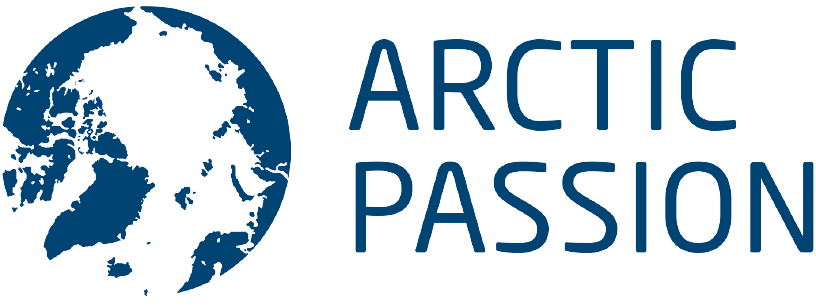
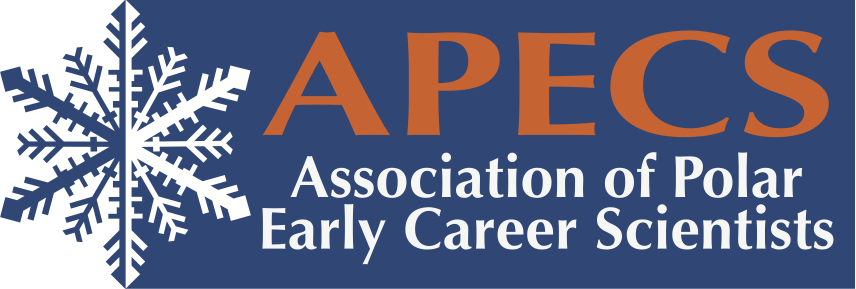
Sharing Circle for Early Career Professionals and Arctic Youth
The Association of Polar Early Career Scientists (APECS) and the EU Project Arctic PASSION organized an APECS & Arctic PASSION Sharing Circle for early career professionals and Arctic youth! The Sharing Circle took place in Sevettijärvi and Inari, Northern Finland, from October 2-6, 2023.
Having grown up in a world of global challenges, Arctic youth and early career professionals have agency in creating positive change for the future. The Arctic will benefit from a close dialogue between Arctic youth and young professionals working in the Arctic arena. The APECS & Arctic PASSION Sharing Circle fosterd this dialogue through a week-long program in Northern Finland.
At a glance
-
 Dates: 2-6 October 2023. The program started Monday morning, 2 October 2023, and ended Friday, 6 October 2023.
Dates: 2-6 October 2023. The program started Monday morning, 2 October 2023, and ended Friday, 6 October 2023.- Start: Sevettijärvi, Northern Finland
- End: Inari, Northern Finland
- Language: English
- Program: Program was filled with group discussions, presentations, outdoor activities and excursions and accompanied by an online event.
- Goal: Participants gained a better understanding of the Arctic and its people, the intercultural and transdisciplinary complexity of the Arctic, and the value of sharing experiences and knowledge in collaborations. Learnings and experiences from the Sharing Circle will help participants to build a frame for working towards equitable and genuine collaborations and a sustainable Arctic future.
Participants of the Sharing Circle gained valuable insights into different cultures and the heritage of the Arctic. They discussed how intercultural and transdisciplinary cooperation can function better, and how the Arctic environment and societies are intertwined. They had the opportunity to present the challenges of their own local Arctic communities. With the Sharing Circle we provided a platform for exchange between Indigenous and local rights holders, Arctic youth, Arctic research experts and early career professionals working with Arctic topics, leading to a better understanding across the region. The connections that were made among participants, who have diverse backgrounds, experiences and perspectives, will form the basis for equitable and genuine collaborations in the future. Highlights were field visits to Indigenous-led ecological restoration sites, such as rivers and lake restoration.
After the Sharing Circle, participants are now serving as Arctic PASSION Ambassadors for one year and will develop their own outreach project to pass on their learnings to their communities, institutes or other chosen audiences.
By attending the Sharing Circle, participants:
-
- gained new perspectives on Arctic issues and Arctic collaborations.
- were empowered to establish meaningful collaborations across sectors and cultures.
- got a better understanding about life in the Arctic and the intercultural and transdisciplinary complexity of the Arctic.
- learned about the approach of “capacity sharing” and its valuable contribution to research processes as well as best practices in engaging with Arctic rights holders and stakeholders.
- learned how to create safe spaces for collaboration and exchange, leading to more equitable research outcomes and better science. This two-way, multi-directional exchange is developed on the basis of reciprocity, communication and collaboration.
- gained a new network.
- have developed their future paths by incorporating their learnings and experiences.
Arctic youth and early career professionals between the age of 20-35 were participating in the Sharing Circle. Participants were:
-
- Youth from and living in the Arctic (Indigenous and non-Indigenous)
- Bachelor and Master students working with Arctic topics
- PhD candidates and Postdocs working with Arctic topics
- Early career professionals working with Arctic topics in the public or private sector

Why Northern Finland?
In the Arctic PASSION project we are honored to work with 6 Arctic communities. One of them is the Skolt Samí community in Sevettijärvi/Northern Finland. We are happy for this unique opportunity that we were able to stay with the Skolt Sámi community and together host the event there. This location on the home lands of this community allowed the participants to listen and to have meaningful conversations with members of the Arctic Indigenous community. Learning about Sámi livelihoods and culture enabled participants to understand conservation and restoration efforts of unique ecological habitats. The culturally important location introduced participants to different ecosystems and cultural heritage in an Arctic environment.
What does the program look like?
The program were filled with group discussions, presentations, outdoor activities and excursions. Presentations were given by community members, experts and participants. Participants gained a better understanding about Arctic life and about the intercultural and transdisciplinary complexity of the Arctic. The Sharing Circle enhanced the exchange of young people from Arctic and non-Arctic regions, promoting better collaboration with and among Arctic communities. The program contents were co-developed by the Sevettijärvi community, early career professionals, Arctic youth and Arctic PASSION partners like the Snowchange Cooperative. Participation in the Sharing Circle included one mandatory online event prior to the in-person meeting.
What is the ambassador project about?
After the Sharing Circle, participants have stayed connected with the Arctic PASSION project as Arctic PASSION Ambassadors for one year (until September 2024). They will share their newly gained knowledge and lessons learned with a wider audience of their choice through outreach products or projects. The project will be chosen and developed by each participant. Arctic PASSION Ambassadors act as multipliers and increase the reach of the Sharing Circle.
The ambassador projects can have a variety of formats, such as a blog, a presentation, activities with schools, engagements with other early career scientists. A similar ambassador project scheme was included in the MOSAiC School in 2019, see example projects here.
If you have any questions, please contact us via: This email address is being protected from spambots. You need JavaScript enabled to view it..
Organizers of the Sharing Circles are Lisa Grosfeld and Nadine Hillenbrand (Association of Polar Early Career Scientists, Alfred Wegener Institute) and Sarah Strand (Association of Polar Early Career Scientists, UiT The Arctic University of Norway).
This event has received funding from the Arctic PASSION project, which is funded by the European Union’s Horizon 2020 research and innovation programme under grant agreement No. 101003472, from the International Arctic Science Committee (IASC) and from the Norwegian Research Council.



APECS and Arctic PASSION Sharing Circle
Participant report by Jessica Hall
Eighteen Arctic youth and early career professionals from around the world travelled to Sevettijärvi, Finland, located in Sápmi, to attend the APECS & Arctic PASSION Sharing Circle from 2-6 October, 2023. We were hosted by Toini Sanila and her team at Porotila Toini Sanila reindeer farm, located in Inari between the lakes Sevettijärvi and Kirakkajärvi. Our hosts were invaluable in sharing their knowledge and experiences surrounding the topics we discussed.
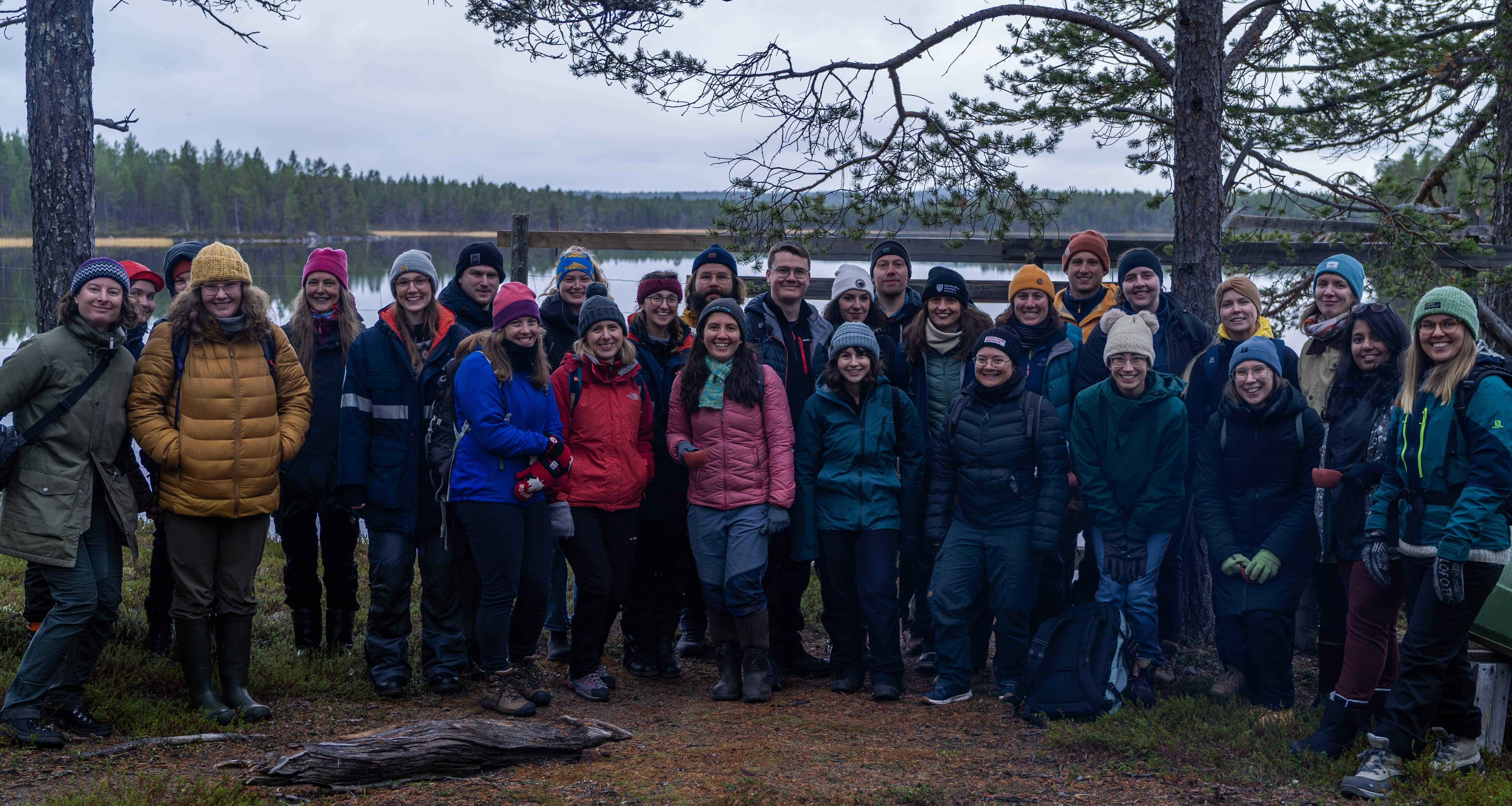
Read more ...
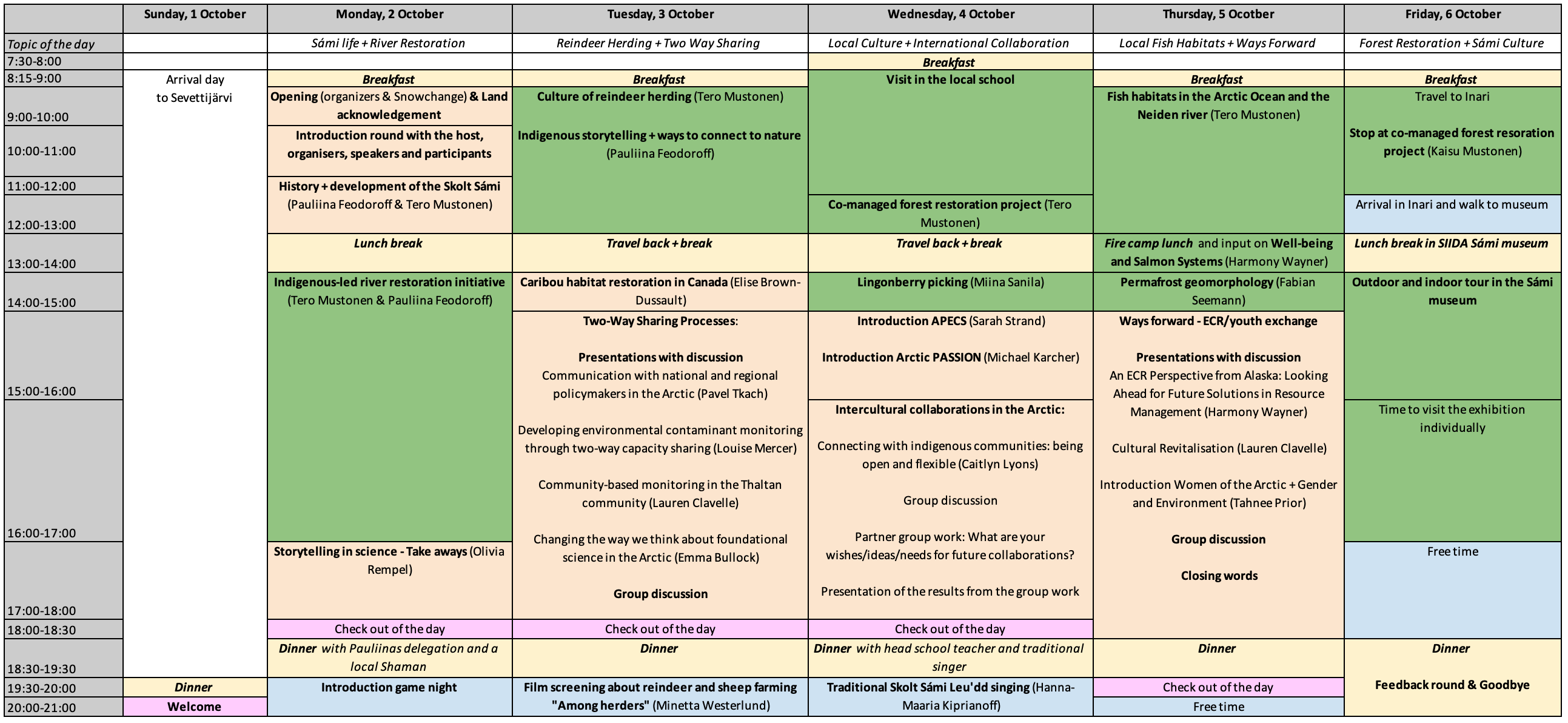
Find out more about who the Sharing Circle 2023 speakers were:
-
Pauliina Feodoroff is a Skolt Sámi leader, playwright, film maker and an artist. She worked as the President of the Sámi Council 2007-2009 and is currently the Coordinator for Eastern Sámi territories of Snowchange work. She leads the Näätämö catchment area co-management work.
-
Tero Mustonen is the President of Snowchange at the moment. He is a winter seiner and adjunct professor (Human Geography). He has been working in Alaska, Canada, Greenland, Iceland, Sámi territories as well as Russian North since 1999. He served recently as a Lead Author for the AR6 of the IPCC. With the Snowchange Cooperative, he is part of the Arctic PASSION EU project and builds the bridge between the project and the Indigenous partner communities collaborating with the project.
-
Olivia Rempel is a documentary filmmaker and multimedia journalist working at GRID-Arendal, where she does everything from producing, shooting and editing documentaries, to guest teaching science communication courses. She holds a master’s degree from the UC Berkeley Graduate School of Journalism, with prior undergraduate work in environmental studies. Olivia has had a variety of media jobs, from logistics and communication work at Students on Ice, an educational polar expedition organization, to leading open-source investigations that combat disinformation at the UC Berkeley Human Rights Center and working on documentaries that have screened at film festivals around the world.
-
Miina Sanila is the daughter of Toini Sanila who build our accomodation house by herself taking care of her three childs (Sanila's Reindeer Farm). The Sanila family hosted our group for a week and shared stories and laughter with us.
-
Sarah Strand is the Executive Director of the Association of Polar Early Career Scientists (APECS) and finalizes her PhD on the topic of permafrost thermal dynamics at The University Centre in Svalbard (UNIS) and the University of Oslo.
-
Michael Karcher is a physical oceanographer and the scientific coordinator of the EU project Arctic PASSION.
-
Hanna-Maaria Kiprianoff is a Skolt Sámi singer and told about the traditional singing of Leu'dd and dances.
-
Harmony Wayner is a tribal member of Naknek Native Village, a commercial fisher in the Bristol Bay salmon fleet, and a marine scientist focused on social-ecological systems to promote Indigenous values and well-being in fisheries. She is an Arctic Frontiers Emerging Leader and Alaska Sea Grant Fellow. Harmony has a Master of Resource Management from the University Centre of the Westfjords in Iceland and a Bachelor of Science in Biology from the University of Alaska Southeast. She is most passionate about elevating the voices of Indigenous communities by integrating Western science and Indigenous knowledge in resource management. Currently, she is working as an Indigenous Liaison at the International Arctic Research Center.
-
Tahnee Prior is the co-founder Women of the Arctic (WoA), a Finland-based non-profit association whose mission it is to raise awareness for, support of, and maintain a focus on women’s and gender-related issues in the Arctic. Together with her colleague, Gosia Smieszek, Tahnee co-leads WoA's research on the gender-dimension of Arctic observing systems in Arctic PASSION. Tahnee recently completed a Postdoctoral Fellowship at Dalhousie University and holds a Ph.D. in Global Governance from the University of Waterloo.
-
Kaisu Mustonen is the Head of the Biodiversity work under Snowchange. She is a human geographer who has been working in Alaska, Northern Canada, Greenland, Iceland, Sámi territories as well as Russian North since 2000. She specializes in gendered biodiversity knowledge. Currently she is working on the Living Maps of the Skolt Sámi people and the Landscape Rewilding Programme.
-
Sharing Circle participants who were speakers: Èlise Brown-Dussault, Pavel Tkach, Louise Mercer, Lauren Clavelle, Emma Bullock, Minetta Westerlund, Fabian Seemann
From about 90 applicants for the APECS & Arctic PASSION Sharing Circle 2023, we have selected 16 participants through a rigorous review process involving 30 reviewers.
Find out more about who the Sharing Circle 2023 participants are:
-
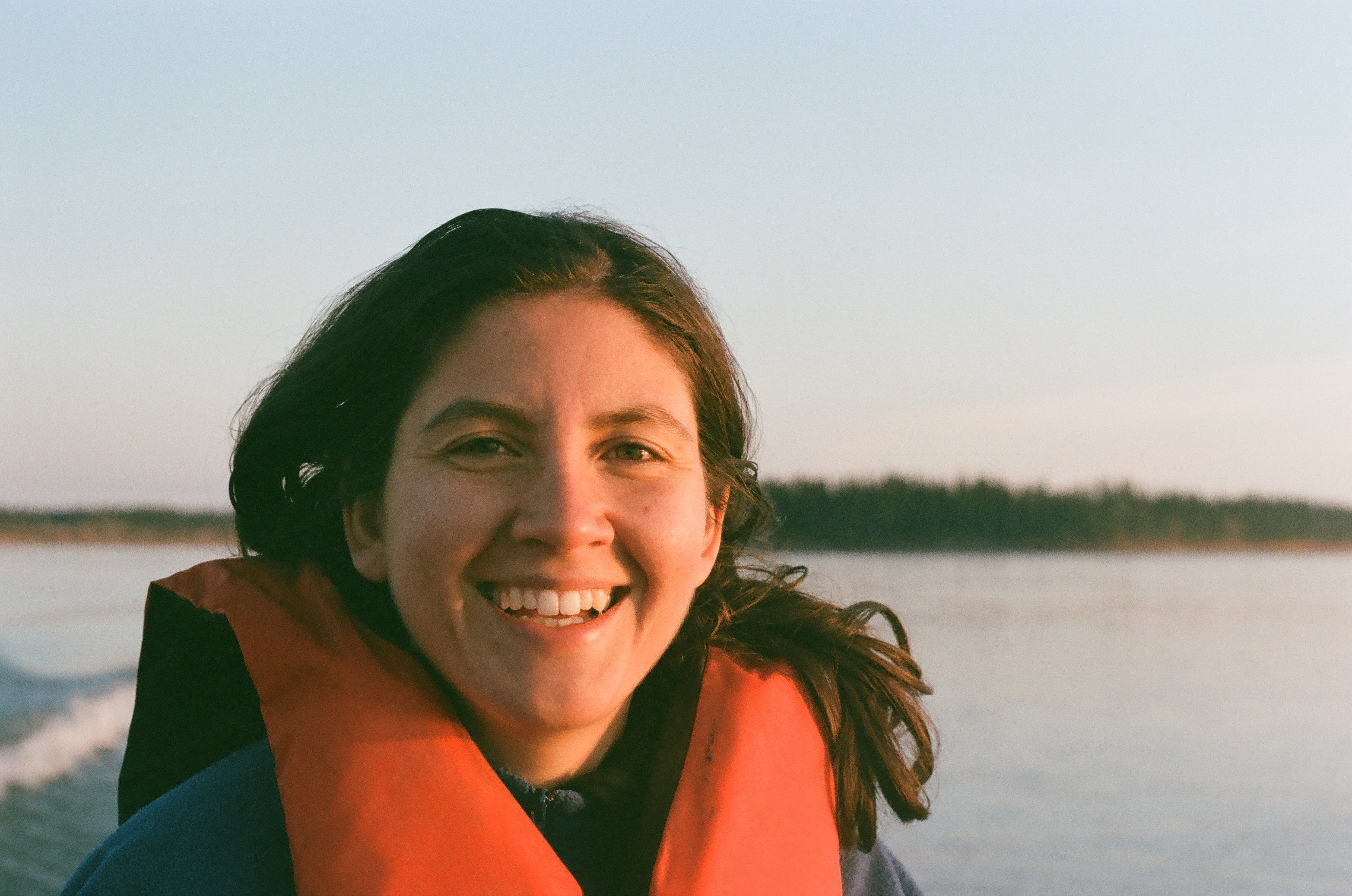 Elise has been a resident of the Yukon for nearly 7 years and is a fierce lover of animals, plants, and lichens. She is currently embarked on a two-year journey of learning about caribou lichens and how it can help rewild boreal forests after wild fires (also known as: a master's degree). In her spare time, she likes to hang out with her lazy sled dog and go out for hikes.
Elise has been a resident of the Yukon for nearly 7 years and is a fierce lover of animals, plants, and lichens. She is currently embarked on a two-year journey of learning about caribou lichens and how it can help rewild boreal forests after wild fires (also known as: a master's degree). In her spare time, she likes to hang out with her lazy sled dog and go out for hikes.
© Bruno LeCavalier
-
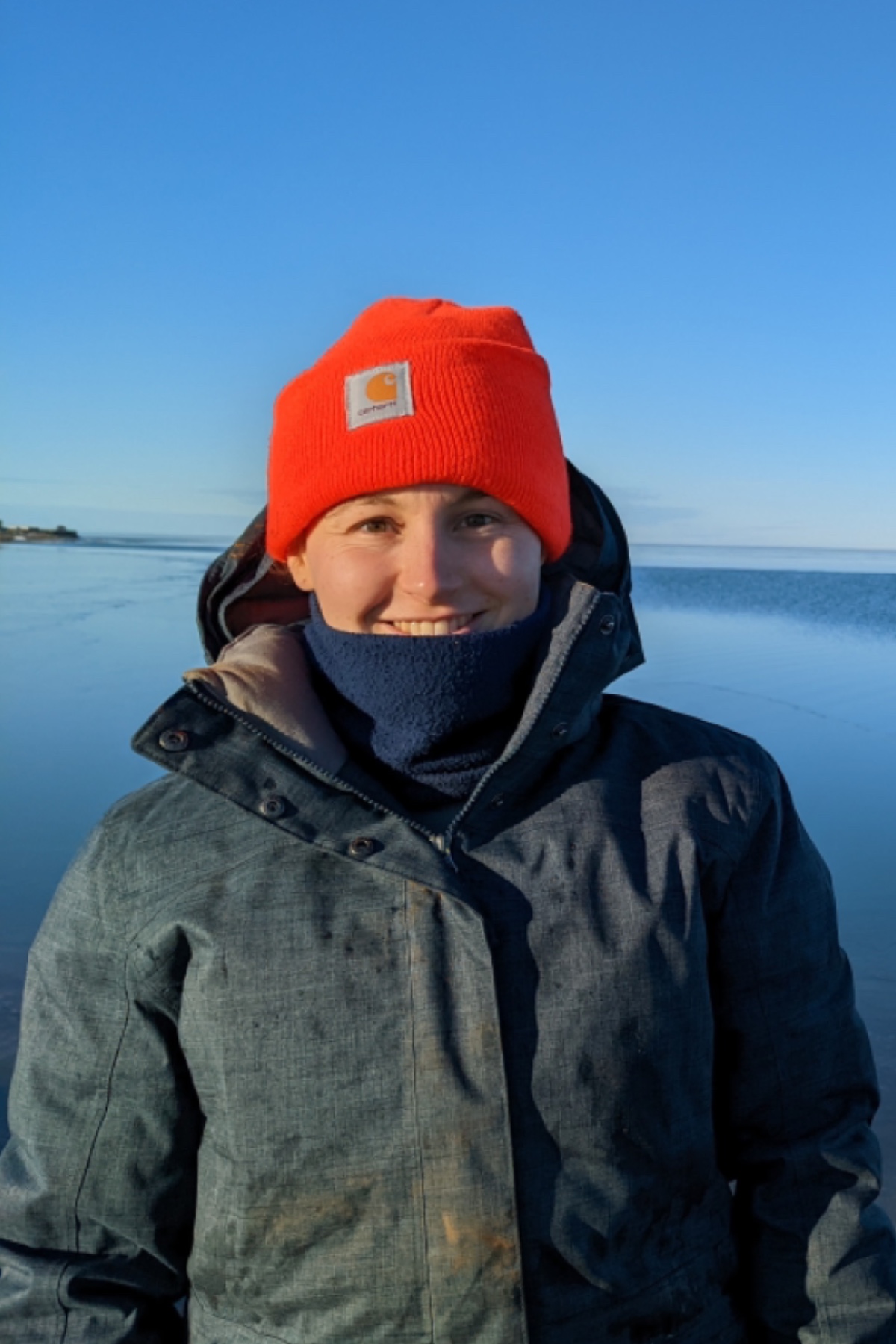 I am a PhD student in the MIT-WHOI joint program for oceanography. I research groundwater in Arctic coastal regions, with a focus on mercury fluxes to the Arctic Ocean.
I am a PhD student in the MIT-WHOI joint program for oceanography. I research groundwater in Arctic coastal regions, with a focus on mercury fluxes to the Arctic Ocean.
© Julia Guimond
-
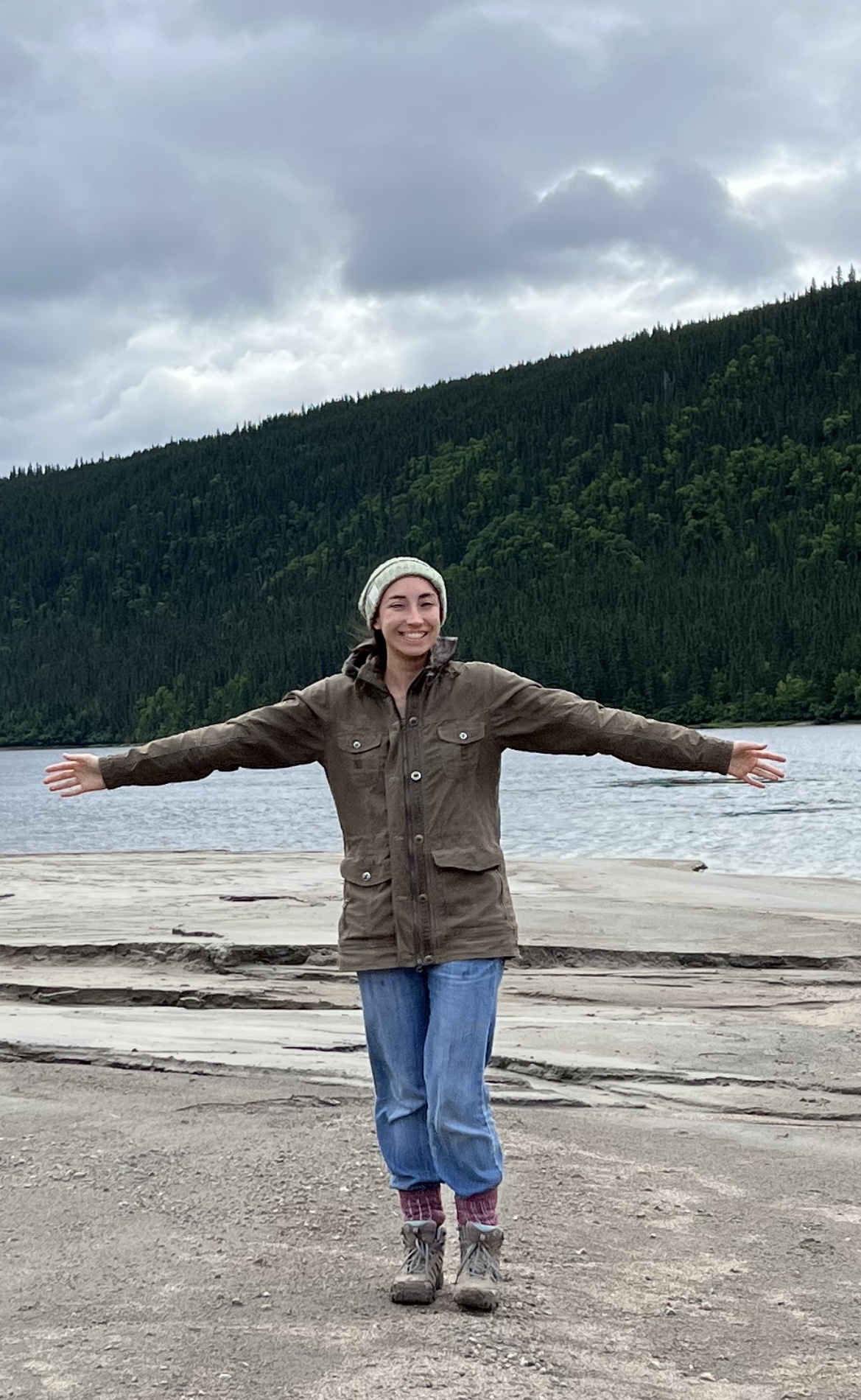 My home is Texas, United States but I am currently attending the University of Vermont for graduate school. I study paleoclimatology and the behavior and sensitivity of extinct ice sheets. My non-academic passions are epee fencing and feminist literature!
My home is Texas, United States but I am currently attending the University of Vermont for graduate school. I study paleoclimatology and the behavior and sensitivity of extinct ice sheets. My non-academic passions are epee fencing and feminist literature!
Why are you participating in the Sharing Circle?
I'm very excited to meet other young career professionals who also study the Arctic. I also can't wait to be immersed in Skolt Sami culture and grow my knowledge of Indigenous communities while making new friends!
© Juliana Souza
-
 Lauren is a Tahltan researcher at Tū’desē’cho Wholistic Indigenous Leadership Development Society in the Community-Led Monitoring, Tene Mehodihi, and Tahltan Knowledge Documentation programs. She is a student of Political Science at the University of Calgary. Her research interests included Indigenous cultural revitalization, activism and the intersection of Indigenous worldviews and Western science in topics related to environmental policy and decision-making.
Lauren is a Tahltan researcher at Tū’desē’cho Wholistic Indigenous Leadership Development Society in the Community-Led Monitoring, Tene Mehodihi, and Tahltan Knowledge Documentation programs. She is a student of Political Science at the University of Calgary. Her research interests included Indigenous cultural revitalization, activism and the intersection of Indigenous worldviews and Western science in topics related to environmental policy and decision-making.
Why are you participating in the Sharing Circle?
As a representative of TWILD, I would like seek reciprocal and mutually beneficial relationships that can achieve local, regional and international social change. I would like to participate in the Sharing Circle to better understand how knowledge can be shared through equitable collaborations between Arctic communities and stakeholders. I hope to further educate myself on how multiple types of environmental data and maps can represent Arctic environmental, social, cultural, and economic change over time and space.
© Lauren Clavelle
-
 I am an Italian researcher in the field of polar sciences and climate change. During the Ph.D., my research focused on reconstructing past climate changes and Antarctic ice sheet dynamics from ice cores. From September 2022 I joined the Joint Research Centre of the EU Commission and I was welcomed on board of the Arctic PASSION Project as one of the developers of the Local Air Pollution Forecast Service (PS5).
I am an Italian researcher in the field of polar sciences and climate change. During the Ph.D., my research focused on reconstructing past climate changes and Antarctic ice sheet dynamics from ice cores. From September 2022 I joined the Joint Research Centre of the EU Commission and I was welcomed on board of the Arctic PASSION Project as one of the developers of the Local Air Pollution Forecast Service (PS5).
Why are you participating in the Sharing Circle?
I would like to participate to the Sharing Circle because I believe that this experience would largely improve my current knowledge on the Arctic topics. I think this experience would enhance my understating of Arctic environmental and climate change issues and also enlarge my knowledge regarding the local communities’ problems and needs.
© Ilaria Crotti
-
 Hello! I am Alizée, a passionate aquatic microbial ecologist exploring the hidden world of invisible organisms inhabiting our environment (Bacteria, phytoplankton and other unicellular organisms). My focus lies in the exploration of remote regions, where a vast array of microorganisms thrive, playing vital roles for the global Earth. Among these captivating places, polar regions, like the Arctic, hold a special place in my heart, with their mesmerizing landscapes where aquatic and terrestrial realms converge into one breathtaking tapestry.
Hello! I am Alizée, a passionate aquatic microbial ecologist exploring the hidden world of invisible organisms inhabiting our environment (Bacteria, phytoplankton and other unicellular organisms). My focus lies in the exploration of remote regions, where a vast array of microorganisms thrive, playing vital roles for the global Earth. Among these captivating places, polar regions, like the Arctic, hold a special place in my heart, with their mesmerizing landscapes where aquatic and terrestrial realms converge into one breathtaking tapestry.
Why are you participating in the Sharing Circle?
Researchers have data to show climate change and its evolution. However, data are not what touches people. Stories are what touches people, and this is something populations living in the Arctic regions have, they are living climate change. With the Sharing Circle, I am looking forward to learning from the people living these changes and hope this dialogue will help me to understand deeply how Arctic ecosystems are changing. I am enthusiastic about meeting people from diverse background who share my fascination for the Arctic.
© Alizée Le Moigne
-
 Hi, I am Jessica. I come from England but have lived in Norway for a few years now. I live in a forest outside of Oslo. I have a background in Comparative Literature and Indigenous poetry. I am now researching Indigenous ecological restoration of land, specifically land which has been stolen for nuclear testing.
Hi, I am Jessica. I come from England but have lived in Norway for a few years now. I live in a forest outside of Oslo. I have a background in Comparative Literature and Indigenous poetry. I am now researching Indigenous ecological restoration of land, specifically land which has been stolen for nuclear testing.
Why are you participating in the Sharing Circle?
I am incredibly excited to learn more about Indigenous-led ecological restoration sites and to better understand what is needed to support this work. Additionally, I am really interested in braided knowledge systems and co-management structures within ecological restoration and think this opportunity will be a great place to learn more.
© Jessica Louise Hall
-
 I am a fourth year PhD candidate at Wilfrid Laurier University in the Forest Ecology Research Group with Dr. Jennifer Baltzer. I study how permafrost thaw and wildfire impact the boreal forest of the Northwest Territories, Canada. During my free time I enjoy running with my dog and volunteering with Girl Guides of Canada.
I am a fourth year PhD candidate at Wilfrid Laurier University in the Forest Ecology Research Group with Dr. Jennifer Baltzer. I study how permafrost thaw and wildfire impact the boreal forest of the Northwest Territories, Canada. During my free time I enjoy running with my dog and volunteering with Girl Guides of Canada.
Why are you participating in the Sharing Circle?
It can be intimidating as an early career professional in the arctic; the issues the arctic faces are immense and overwhelming. By participating in the Sharing Circle I hope to share my experiences and learn from the experiences of others to contribute to arctic research in an impactful and meaningful way.
© Evan Schijns
-
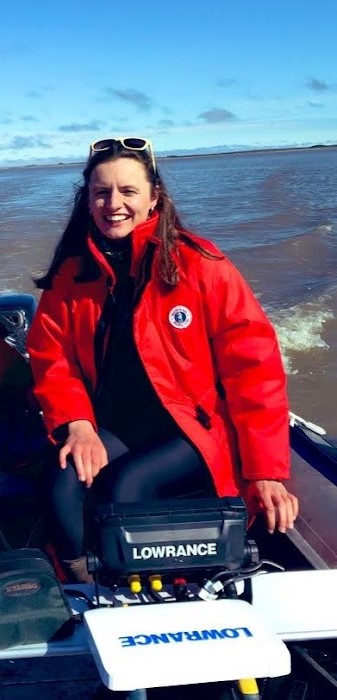 I am a PhD student at Northumbria University, UK. Currently, my research centers on better understanding community-based monitoring of environmental change in the Canadian Arctic. Through my research, I hope to advance collaborative partnerships and capacity sharing to promote resilient and sustainable environmental monitoring approaches. In doing so, different capacities and insights from diverse knowledge systems are brought together to guide environmental monitoring toward appropriate and effective decision-making.
I am a PhD student at Northumbria University, UK. Currently, my research centers on better understanding community-based monitoring of environmental change in the Canadian Arctic. Through my research, I hope to advance collaborative partnerships and capacity sharing to promote resilient and sustainable environmental monitoring approaches. In doing so, different capacities and insights from diverse knowledge systems are brought together to guide environmental monitoring toward appropriate and effective decision-making.
Why are you participating in the Sharing Circle?
T
he sharing circle will facilitate two-way knowledge exchange processes, providing me with the invaluable opportunity to learn from diverse individuals and knowledge systems. Indigenous youth and ECRs can drive positive change in research approaches, takeaways from this sharing circle could be used to shape future Arctic research processes towards being more inclusive of diverse ways of knowing.
© Louise Mercer
-
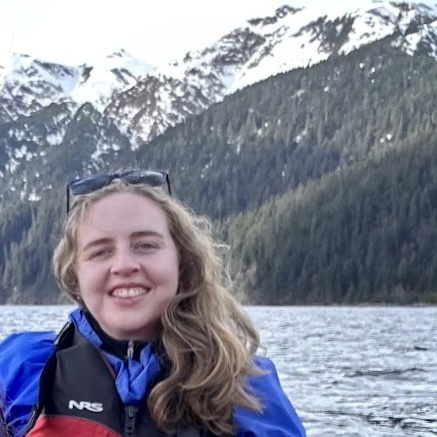 After earning a Bachelor of Science in Environmental Studies at the University of Southern California, I pursued a Master of Science in Sustainable Development from Trinity College Dublin and, for my thesis, used a decolonization framework to analyze natural resource development in the US Arctic. Now, as an Education Specialist at the Alaska SeaLife Center, I deliver educational programs on Alaska's ecosystems, animals, and culture. I hope to continue working in science communication at the intersection of environmental and social issues in the Arctic and Subarctic.
After earning a Bachelor of Science in Environmental Studies at the University of Southern California, I pursued a Master of Science in Sustainable Development from Trinity College Dublin and, for my thesis, used a decolonization framework to analyze natural resource development in the US Arctic. Now, as an Education Specialist at the Alaska SeaLife Center, I deliver educational programs on Alaska's ecosystems, animals, and culture. I hope to continue working in science communication at the intersection of environmental and social issues in the Arctic and Subarctic.
Why are you participating in the Sharing Circle?
I am eager to participate in the Sharing Circle to deepen my understanding of the challenges and opportunities of building a more sustainable and equitable future in the Arctic region. I anticipate learning a great deal through this experience and I believe that participating in the Sharing Circle will make me a more effective collaborator and educator.
© Rebeca Irigoyen
-
 Rashmi is a doctoral candidate with the School of Conflict and Security Studies, National Institute of Advanced Studies, Bengaluru. For her thesis, she works on the role of institutions in the Arctic, focusing on the Arctic Council and the Sámi Council. She is a Visiting Researcher with the Arctic Centre, University of Lapland, Rovaniemi. Her research interests include Arctic geopolitics, Asia's role in the Arctic, climate change and India's foreign policy.
Rashmi is a doctoral candidate with the School of Conflict and Security Studies, National Institute of Advanced Studies, Bengaluru. For her thesis, she works on the role of institutions in the Arctic, focusing on the Arctic Council and the Sámi Council. She is a Visiting Researcher with the Arctic Centre, University of Lapland, Rovaniemi. Her research interests include Arctic geopolitics, Asia's role in the Arctic, climate change and India's foreign policy.
© Srinivas Kadaba
-
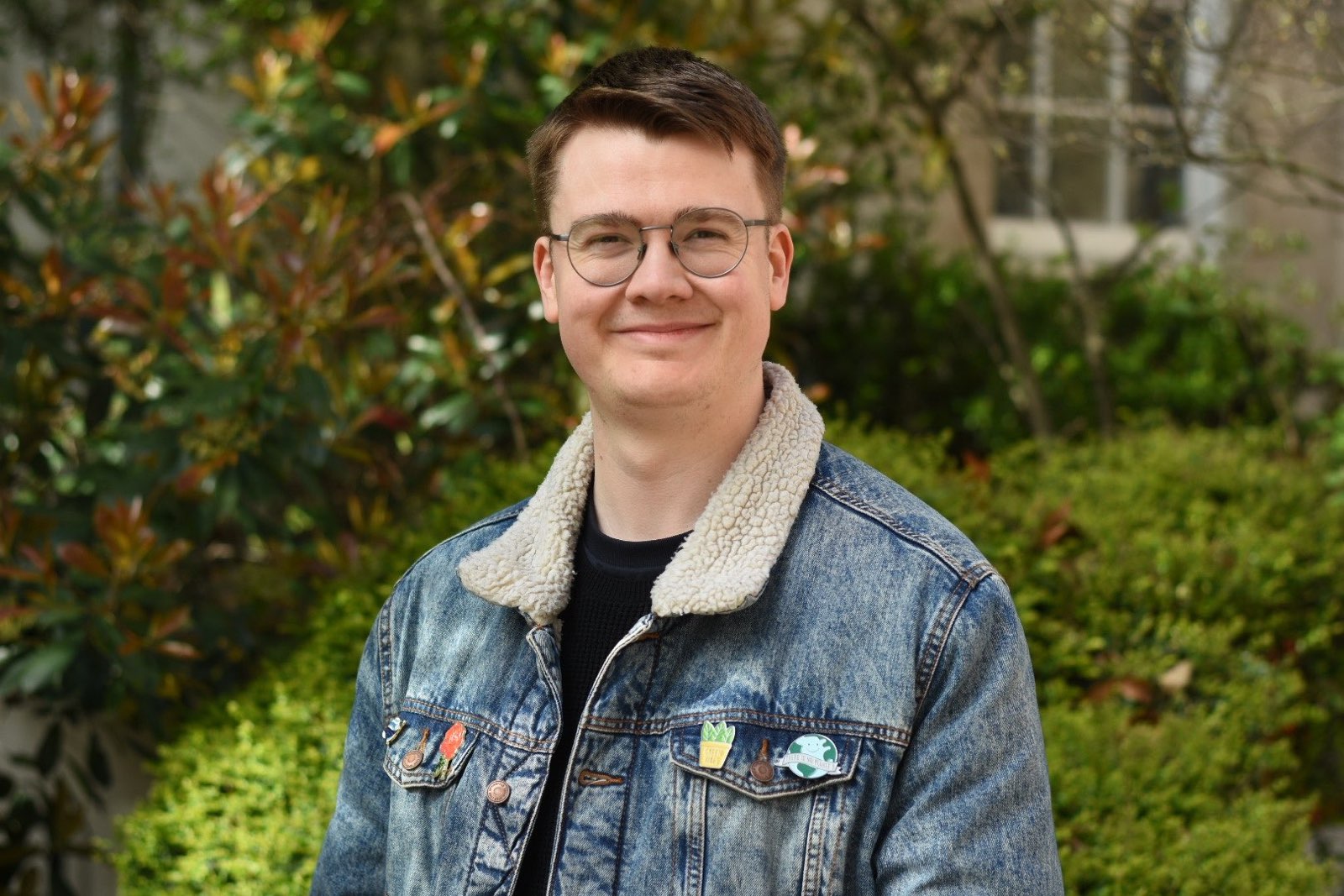 Conor is an ESG Programme Manager with Sainsbury's, where he is responsible for leading the development and maintenance of Sainsbury's Bank's ESG strategy. Before this he was a Climate Reporting Manager with NatWest Group, where he provided advice and technical expertise on climate, nature, and other sustainability-related policy. He joined the Group in 2019, as a Change & Business Solutions Graduate with Ulster Bank. Prior to this he studied Marine Biology at Bangor University, completing both a BSc and MSc. Whilst there, he specialised in the effects of Arctic sea ice retreat on sea ice-reliant/associated species, in particular walruses!
Conor is an ESG Programme Manager with Sainsbury's, where he is responsible for leading the development and maintenance of Sainsbury's Bank's ESG strategy. Before this he was a Climate Reporting Manager with NatWest Group, where he provided advice and technical expertise on climate, nature, and other sustainability-related policy. He joined the Group in 2019, as a Change & Business Solutions Graduate with Ulster Bank. Prior to this he studied Marine Biology at Bangor University, completing both a BSc and MSc. Whilst there, he specialised in the effects of Arctic sea ice retreat on sea ice-reliant/associated species, in particular walruses!
Why are you participating in the Sharing Circle?
I'm joining the Sharing Circle as I believe it will be a valuable opportunity for me to learn from other early career professionals as well as Arctic youth, giving us the chance to network and discuss the key issues affecting the Arctic today, whilst allowing me to share my own work and experiences in the financial sector, explaining the important role it plays in shaping climate and nature through its activities, and importantly, how this can potentially be shaped for the better. I’ve always been fascinated by the Arctic, and I can confidently say I wholeheartedly support any efforts to safeguard it and support the people that inhabit it, as this goal has always resonated with me, and is very close to my heart. I'm hoping to learn about Arctic life, especially the different cultures of those that hail from there. I'd also like to share my own experiences with training and development initiatives, and how they could potentially be applied to support those operating in an Arctic context.
© Roisín Savage
-
 I am a physical geographer specialized in permafrost research based at the Alfred-Wegener-Institute in Potsdam, Germany. My work focuses on a range of localities from sub-Arctic permafrost peatlands in Sweden to high-Arctic coastal environments in Alaska.
I am a physical geographer specialized in permafrost research based at the Alfred-Wegener-Institute in Potsdam, Germany. My work focuses on a range of localities from sub-Arctic permafrost peatlands in Sweden to high-Arctic coastal environments in Alaska.
© Fabienne Mannherz
-
 I am a researcher at the Department of Linguistics of Dartmouth College. In Russia I worked at the Institute of Linguistics of the Russian Academy of Sciences. I am a field linguist with expertise in Indigenous languages of Siberia and the Far East, namely Northern Tungusic (Evenki and Even), Siberian Turkic (Dolgan and Yakut), and Chukotko-Kamchatkan (Itelmen and Chukchi). My fieldwork seeks the preservation, digitalization, and revitalization of extremely endangered languages. Although her main research interest is in linguistics, an integral part of her work is an interaction with minority national communities in terms of education and promotion of native languages, as well as protection of the interests of Indigenous communities before the federal authorities.
I am a researcher at the Department of Linguistics of Dartmouth College. In Russia I worked at the Institute of Linguistics of the Russian Academy of Sciences. I am a field linguist with expertise in Indigenous languages of Siberia and the Far East, namely Northern Tungusic (Evenki and Even), Siberian Turkic (Dolgan and Yakut), and Chukotko-Kamchatkan (Itelmen and Chukchi). My fieldwork seeks the preservation, digitalization, and revitalization of extremely endangered languages. Although her main research interest is in linguistics, an integral part of her work is an interaction with minority national communities in terms of education and promotion of native languages, as well as protection of the interests of Indigenous communities before the federal authorities.
Why are you participating in the Sharing Circle?
I am deeply involved in the language, social and right problematics of the Arctic peoples, who are represented in greater numbers in Russia, that I left because of the police persecution related to my antiwar activities, and the USA, where I currently work as a researcher
© Karina Sheifer
-
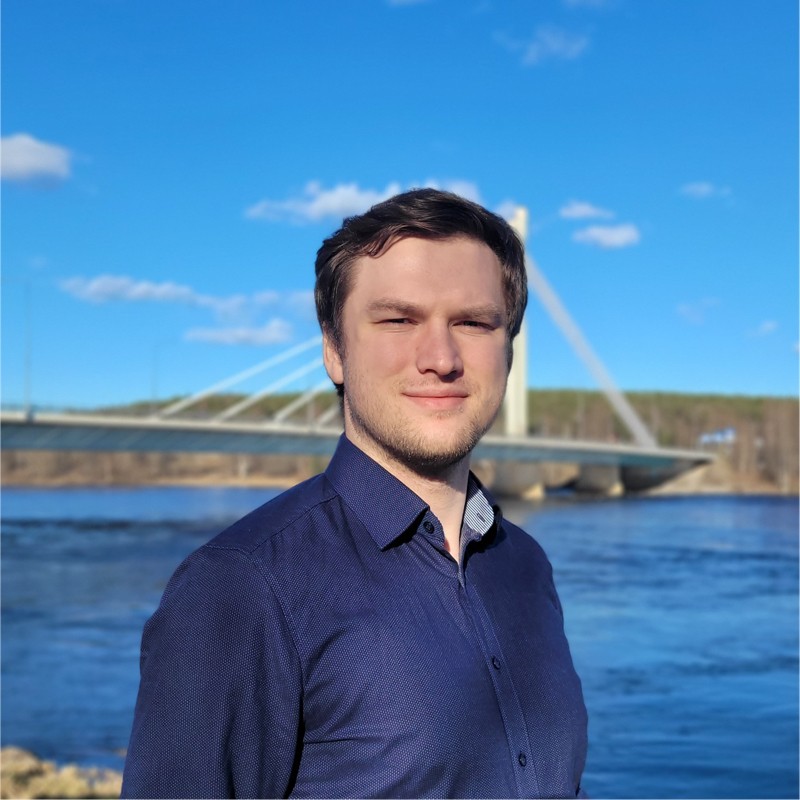 Researcher with a law background and experience, interested in Arctic Governance from multiple perspectives. These include policymaking and innovations in environmental and climate governance, legal developments in domestic systems of the Arctic States, and bilateral relations between the Arctic states.
Researcher with a law background and experience, interested in Arctic Governance from multiple perspectives. These include policymaking and innovations in environmental and climate governance, legal developments in domestic systems of the Arctic States, and bilateral relations between the Arctic states.
Why are you participating in the Sharing Circle?
My primary interest in SC is in curiosity and research interest on the topic of interactions between indigenous communities and public administration bodies. In participating in SC, I see my chance to interact with the indigenous community, ask questions, and have interesting discussions with young researchers from different parts of the Arctic.
© Anastasiya Liamina
-
 Originating from Helsinki, I relocated to Tromsø three years ago to pursue a Master's degree in Visual Anthropology and immerse myself in backcountry skiing. Since I graduated summer 2022, I have been interning at the Arctic Council Secretariat. This September I will take up a new position as Administrative and Communications Advisor at the ACS, and I look forward to keep working on Arctic issues and deepening my knowledge and understanding about the region. © Jessica Cook
Originating from Helsinki, I relocated to Tromsø three years ago to pursue a Master's degree in Visual Anthropology and immerse myself in backcountry skiing. Since I graduated summer 2022, I have been interning at the Arctic Council Secretariat. This September I will take up a new position as Administrative and Communications Advisor at the ACS, and I look forward to keep working on Arctic issues and deepening my knowledge and understanding about the region. © Jessica Cook
-
 I am a researcher and a doctoral student working in Finnish Meteorological Institute with academic background in environmental and natural resource economics. My research focuses on estimating economic impacts of climate change adaptation measures and natural resource use.
I am a researcher and a doctoral student working in Finnish Meteorological Institute with academic background in environmental and natural resource economics. My research focuses on estimating economic impacts of climate change adaptation measures and natural resource use.
Why are you participating in the Sharing Circle?
Questions linked to socially optimal and sustainable use of natural resources fascinates me. Sharing circle could perhaps help me to understand these questions better in the arctic context.
© Jaakko Juvonen
-
 I'm a young researcher working at the Finnish Meteorological Institution with a background in environmental economics. When I'm not doing research stuff, you'll find me outdoors, doing sports or playing with dogs. I'm also a passionate secondhand shopper and circular economy advocate.
I'm a young researcher working at the Finnish Meteorological Institution with a background in environmental economics. When I'm not doing research stuff, you'll find me outdoors, doing sports or playing with dogs. I'm also a passionate secondhand shopper and circular economy advocate.
Why are you participating in the Sharing Circle?
I'm eager to participate in the Sharing Circle because it provides a unique opportunity to engage with fellow early-career scientists from various disciplines and to expand my understanding of the Arctic environment, its complexities, and the challenges it faces. I believe that this collaborative event will broaden my understanding of Arctic research and foster connections that can drive innovative solutions for the preservation of this critical region. Additionally, the chance to meet, share ideas, and learn from experienced mentors and indigenous people really excites me.
© Iris Nurminen
The organizing team of the APECS & Arctic PASSION Sharing Circle consisted of:
- Lisa Grosfeld (APECS / Alfred Wegener Institute, Germany)
- Nadine Hillenbrand (APECS / Alfred Wegener Institute, Germany)
- Sarah Strand (APECS / UiT, Norway)



 Dates: 2-6 October 2023. The program started Monday morning, 2 October 2023, and ended Friday, 6 October 2023.
Dates: 2-6 October 2023. The program started Monday morning, 2 October 2023, and ended Friday, 6 October 2023.




 Elise has been a resident of the Yukon for nearly 7 years and is a fierce lover of animals, plants, and lichens. She is currently embarked on a two-year journey of learning about caribou lichens and how it can help rewild boreal forests after wild fires (also known as: a master's degree). In her spare time, she likes to hang out with her lazy sled dog and go out for hikes.
Elise has been a resident of the Yukon for nearly 7 years and is a fierce lover of animals, plants, and lichens. She is currently embarked on a two-year journey of learning about caribou lichens and how it can help rewild boreal forests after wild fires (also known as: a master's degree). In her spare time, she likes to hang out with her lazy sled dog and go out for hikes. I am a PhD student in the MIT-WHOI joint program for oceanography. I research groundwater in Arctic coastal regions, with a focus on mercury fluxes to the Arctic Ocean.
I am a PhD student in the MIT-WHOI joint program for oceanography. I research groundwater in Arctic coastal regions, with a focus on mercury fluxes to the Arctic Ocean. My home is Texas, United States but I am currently attending the University of Vermont for graduate school. I study paleoclimatology and the behavior and sensitivity of extinct ice sheets. My non-academic passions are epee fencing and feminist literature!
My home is Texas, United States but I am currently attending the University of Vermont for graduate school. I study paleoclimatology and the behavior and sensitivity of extinct ice sheets. My non-academic passions are epee fencing and feminist literature! Lauren is a Tahltan researcher at Tū’desē’cho Wholistic Indigenous Leadership Development Society in the Community-Led Monitoring, Tene Mehodihi, and Tahltan Knowledge Documentation programs. She is a student of Political Science at the University of Calgary. Her research interests included Indigenous cultural revitalization, activism and the intersection of Indigenous worldviews and Western science in topics related to environmental policy and decision-making.
Lauren is a Tahltan researcher at Tū’desē’cho Wholistic Indigenous Leadership Development Society in the Community-Led Monitoring, Tene Mehodihi, and Tahltan Knowledge Documentation programs. She is a student of Political Science at the University of Calgary. Her research interests included Indigenous cultural revitalization, activism and the intersection of Indigenous worldviews and Western science in topics related to environmental policy and decision-making. I am an Italian researcher in the field of polar sciences and climate change. During the Ph.D., my research focused on reconstructing past climate changes and Antarctic ice sheet dynamics from ice cores. From September 2022 I joined the Joint Research Centre of the EU Commission and I was welcomed on board of the Arctic PASSION Project as one of the developers of the Local Air Pollution Forecast Service (PS5).
I am an Italian researcher in the field of polar sciences and climate change. During the Ph.D., my research focused on reconstructing past climate changes and Antarctic ice sheet dynamics from ice cores. From September 2022 I joined the Joint Research Centre of the EU Commission and I was welcomed on board of the Arctic PASSION Project as one of the developers of the Local Air Pollution Forecast Service (PS5). Hello! I am Alizée, a passionate aquatic microbial ecologist exploring the hidden world of invisible organisms inhabiting our environment (Bacteria, phytoplankton and other unicellular organisms). My focus lies in the exploration of remote regions, where a vast array of microorganisms thrive, playing vital roles for the global Earth. Among these captivating places, polar regions, like the Arctic, hold a special place in my heart, with their mesmerizing landscapes where aquatic and terrestrial realms converge into one breathtaking tapestry.
Hello! I am Alizée, a passionate aquatic microbial ecologist exploring the hidden world of invisible organisms inhabiting our environment (Bacteria, phytoplankton and other unicellular organisms). My focus lies in the exploration of remote regions, where a vast array of microorganisms thrive, playing vital roles for the global Earth. Among these captivating places, polar regions, like the Arctic, hold a special place in my heart, with their mesmerizing landscapes where aquatic and terrestrial realms converge into one breathtaking tapestry. Hi, I am Jessica. I come from England but have lived in Norway for a few years now. I live in a forest outside of Oslo. I have a background in Comparative Literature and Indigenous poetry. I am now researching Indigenous ecological restoration of land, specifically land which has been stolen for nuclear testing.
Hi, I am Jessica. I come from England but have lived in Norway for a few years now. I live in a forest outside of Oslo. I have a background in Comparative Literature and Indigenous poetry. I am now researching Indigenous ecological restoration of land, specifically land which has been stolen for nuclear testing.  I am a fourth year PhD candidate at Wilfrid Laurier University in the Forest Ecology Research Group with Dr. Jennifer Baltzer. I study how permafrost thaw and wildfire impact the boreal forest of the Northwest Territories, Canada. During my free time I enjoy running with my dog and volunteering with Girl Guides of Canada.
I am a fourth year PhD candidate at Wilfrid Laurier University in the Forest Ecology Research Group with Dr. Jennifer Baltzer. I study how permafrost thaw and wildfire impact the boreal forest of the Northwest Territories, Canada. During my free time I enjoy running with my dog and volunteering with Girl Guides of Canada. I am a PhD student at Northumbria University, UK. Currently, my research centers on better understanding community-based monitoring of environmental change in the Canadian Arctic. Through my research, I hope to advance collaborative partnerships and capacity sharing to promote resilient and sustainable environmental monitoring approaches. In doing so, different capacities and insights from diverse knowledge systems are brought together to guide environmental monitoring toward appropriate and effective decision-making.
I am a PhD student at Northumbria University, UK. Currently, my research centers on better understanding community-based monitoring of environmental change in the Canadian Arctic. Through my research, I hope to advance collaborative partnerships and capacity sharing to promote resilient and sustainable environmental monitoring approaches. In doing so, different capacities and insights from diverse knowledge systems are brought together to guide environmental monitoring toward appropriate and effective decision-making. After earning a Bachelor of Science in Environmental Studies at the University of Southern California, I pursued a Master of Science in Sustainable Development from Trinity College Dublin and, for my thesis, used a decolonization framework to analyze natural resource development in the US Arctic. Now, as an Education Specialist at the Alaska SeaLife Center, I deliver educational programs on Alaska's ecosystems, animals, and culture. I hope to continue working in science communication at the intersection of environmental and social issues in the Arctic and Subarctic.
After earning a Bachelor of Science in Environmental Studies at the University of Southern California, I pursued a Master of Science in Sustainable Development from Trinity College Dublin and, for my thesis, used a decolonization framework to analyze natural resource development in the US Arctic. Now, as an Education Specialist at the Alaska SeaLife Center, I deliver educational programs on Alaska's ecosystems, animals, and culture. I hope to continue working in science communication at the intersection of environmental and social issues in the Arctic and Subarctic. Rashmi is a doctoral candidate with the School of Conflict and Security Studies, National Institute of Advanced Studies, Bengaluru. For her thesis, she works on the role of institutions in the Arctic, focusing on the Arctic Council and the Sámi Council. She is a Visiting Researcher with the Arctic Centre, University of Lapland, Rovaniemi. Her research interests include Arctic geopolitics, Asia's role in the Arctic, climate change and India's foreign policy.
Rashmi is a doctoral candidate with the School of Conflict and Security Studies, National Institute of Advanced Studies, Bengaluru. For her thesis, she works on the role of institutions in the Arctic, focusing on the Arctic Council and the Sámi Council. She is a Visiting Researcher with the Arctic Centre, University of Lapland, Rovaniemi. Her research interests include Arctic geopolitics, Asia's role in the Arctic, climate change and India's foreign policy.  Conor is an ESG Programme Manager with Sainsbury's, where he is responsible for leading the development and maintenance of Sainsbury's Bank's ESG strategy. Before this he was a Climate Reporting Manager with NatWest Group, where he provided advice and technical expertise on climate, nature, and other sustainability-related policy. He joined the Group in 2019, as a Change & Business Solutions Graduate with Ulster Bank. Prior to this he studied Marine Biology at Bangor University, completing both a BSc and MSc. Whilst there, he specialised in the effects of Arctic sea ice retreat on sea ice-reliant/associated species, in particular walruses!
Conor is an ESG Programme Manager with Sainsbury's, where he is responsible for leading the development and maintenance of Sainsbury's Bank's ESG strategy. Before this he was a Climate Reporting Manager with NatWest Group, where he provided advice and technical expertise on climate, nature, and other sustainability-related policy. He joined the Group in 2019, as a Change & Business Solutions Graduate with Ulster Bank. Prior to this he studied Marine Biology at Bangor University, completing both a BSc and MSc. Whilst there, he specialised in the effects of Arctic sea ice retreat on sea ice-reliant/associated species, in particular walruses! I am a physical geographer specialized in permafrost research based at the Alfred-Wegener-Institute in Potsdam, Germany. My work focuses on a range of localities from sub-Arctic permafrost peatlands in Sweden to high-Arctic coastal environments in Alaska.
I am a physical geographer specialized in permafrost research based at the Alfred-Wegener-Institute in Potsdam, Germany. My work focuses on a range of localities from sub-Arctic permafrost peatlands in Sweden to high-Arctic coastal environments in Alaska. I am a researcher at the Department of Linguistics of Dartmouth College. In Russia I worked at the Institute of Linguistics of the Russian Academy of Sciences. I am a field linguist with expertise in Indigenous languages of Siberia and the Far East, namely Northern Tungusic (Evenki and Even), Siberian Turkic (Dolgan and Yakut), and Chukotko-Kamchatkan (Itelmen and Chukchi). My fieldwork seeks the preservation, digitalization, and revitalization of extremely endangered languages. Although her main research interest is in linguistics, an integral part of her work is an interaction with minority national communities in terms of education and promotion of native languages, as well as protection of the interests of Indigenous communities before the federal authorities
I am a researcher at the Department of Linguistics of Dartmouth College. In Russia I worked at the Institute of Linguistics of the Russian Academy of Sciences. I am a field linguist with expertise in Indigenous languages of Siberia and the Far East, namely Northern Tungusic (Evenki and Even), Siberian Turkic (Dolgan and Yakut), and Chukotko-Kamchatkan (Itelmen and Chukchi). My fieldwork seeks the preservation, digitalization, and revitalization of extremely endangered languages. Although her main research interest is in linguistics, an integral part of her work is an interaction with minority national communities in terms of education and promotion of native languages, as well as protection of the interests of Indigenous communities before the federal authorities Researcher with a law background and experience, interested in Arctic Governance from multiple perspectives. These include policymaking and innovations in environmental and climate governance, legal developments in domestic systems of the Arctic States, and bilateral relations between the Arctic states
Researcher with a law background and experience, interested in Arctic Governance from multiple perspectives. These include policymaking and innovations in environmental and climate governance, legal developments in domestic systems of the Arctic States, and bilateral relations between the Arctic states O
O I am a researcher and a doctoral student working in Finnish Meteorological Institute with academic background in environmental and natural resource economics. My research focuses on estimating economic impacts of climate change adaptation measures and natural resource use.
I am a researcher and a doctoral student working in Finnish Meteorological Institute with academic background in environmental and natural resource economics. My research focuses on estimating economic impacts of climate change adaptation measures and natural resource use. I'm a young researcher working at the Finnish Meteorological Institution with a background in environmental economics. When I'm not doing research stuff, you'll find me outdoors, doing sports or playing with dogs. I'm also a passionate secondhand shopper and circular economy advocate.
I'm a young researcher working at the Finnish Meteorological Institution with a background in environmental economics. When I'm not doing research stuff, you'll find me outdoors, doing sports or playing with dogs. I'm also a passionate secondhand shopper and circular economy advocate.

